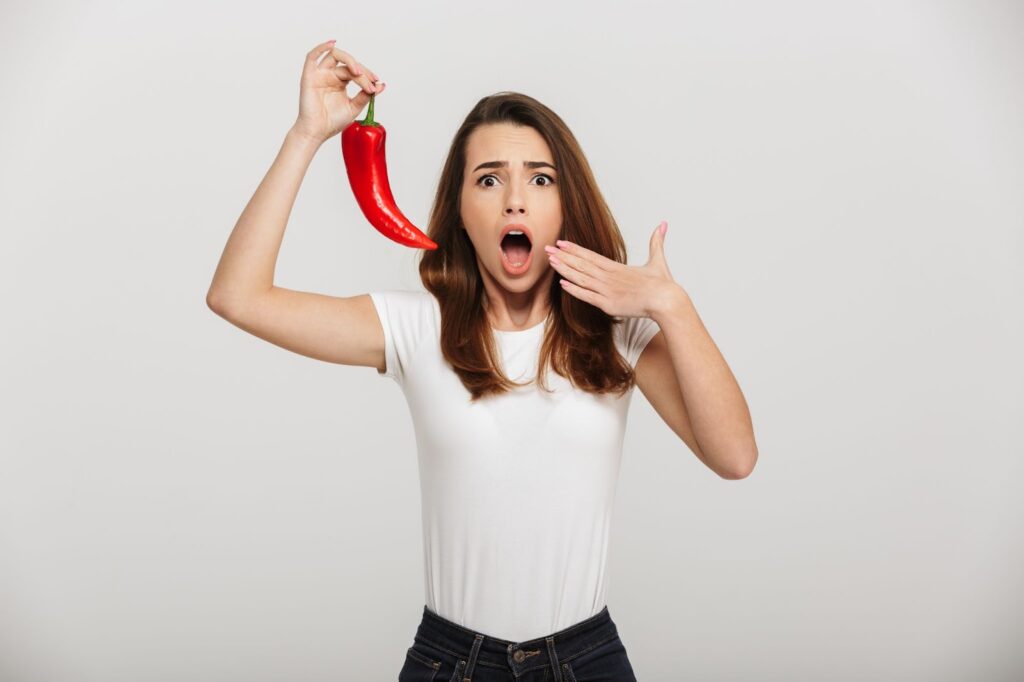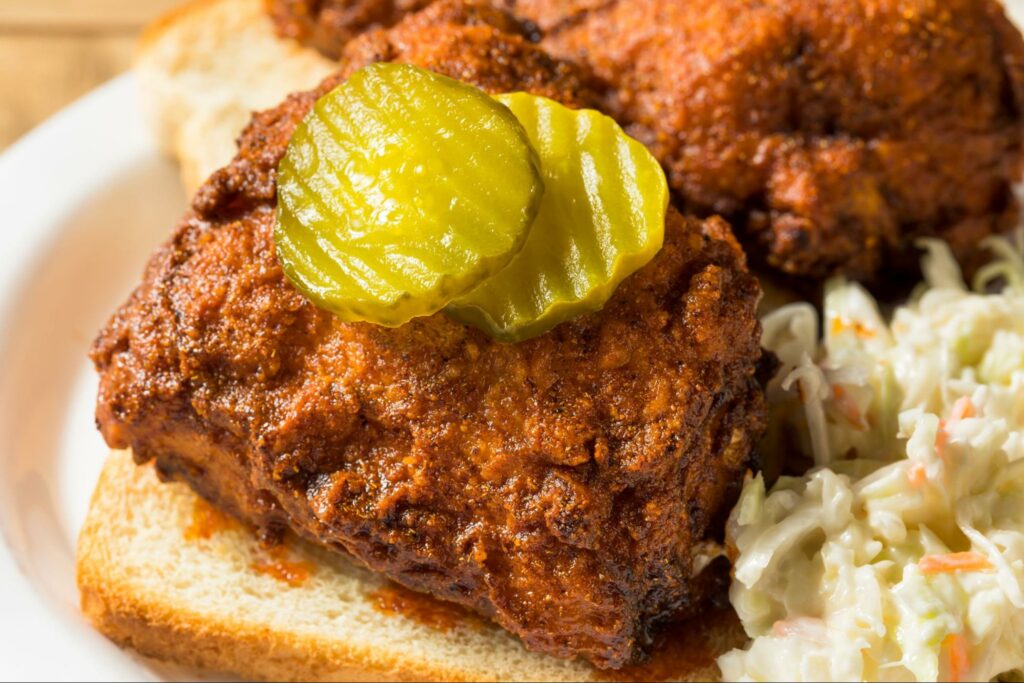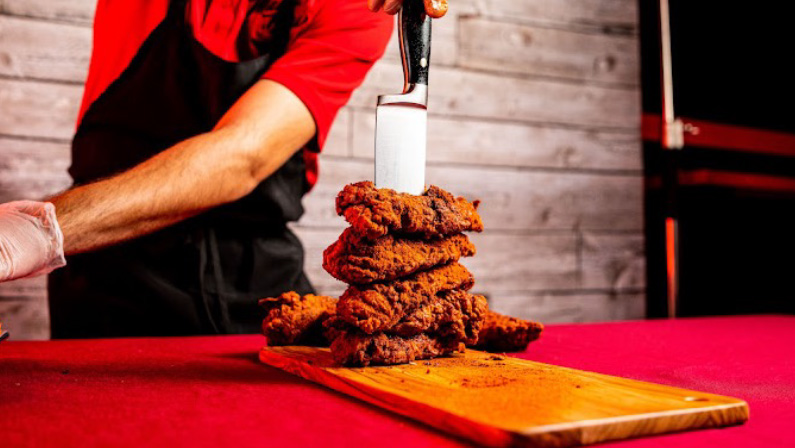From the tangy zing of salsa to the fiery kick of a spicy hot chicken, spicy food have captivated our taste buds and senses for generations. But have you ever wondered why we get these spicy food cravings and love coming back for more?
In this article, we delve into the captivating world of spicy food, exploring the science behind their addictive allure, their health benefits, and the intriguing Scoville Heat Scale.
What Makes Food Spicy
At the heart of the fiery sensation is capsaicin, a naturally occurring compound found in chili peppers. When capsaicin meets the receptors on our tongue and mouth, it sets off a spectacular chain reaction that ignites our perception of heat.
Our taste buds might think it’s a fire alarm, but it’s more like a sophisticated dance between molecules and nerves. As capsaicin binds to receptors called TRPV1 (transient receptor potential vanilloid 1), it triggers a response that our brain interprets as a burning sensation. This sensation is no accident—it’s an evolutionary quirk that certain plants, like chili peppers, have mastered to protect themselves from being eaten.
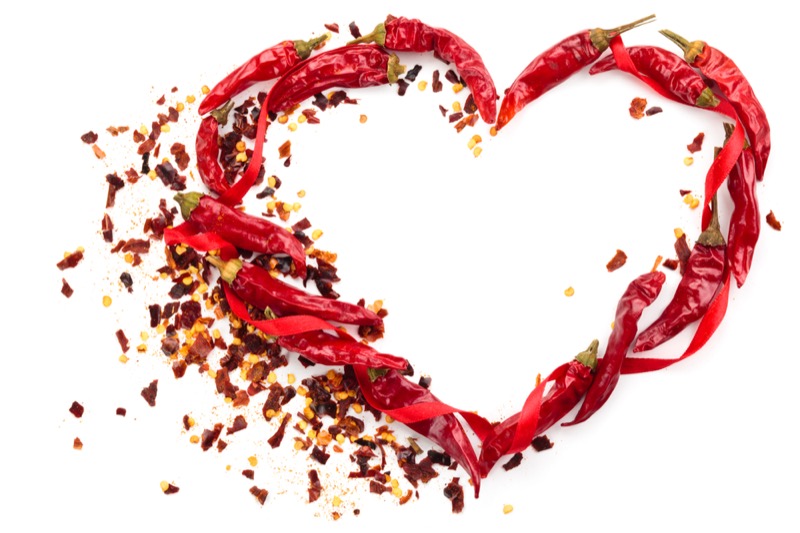
Why do we love spicy food?
This burning sensation from the capsaicin isn’t all pain and no gain. When our body senses the heat, it springs into action, releasing a cascade of endorphins. These endorphins are like the body’s in-house painkillers, soothing the initial discomfort and replacing it with a sense of pleasure. It’s like a tiny reward system designed by nature, creating a euphoric feeling that has us hooked on that tingling, tantalizing burn.
The release of endorphins not only dulls the immediate pain of spice but also creates a rush of joy and excitement. This neurological response fosters an emotional connection to spicy food, encouraging us to seek out that pleasurable experience time and again.
Spicy Food Can Cause a “High”
There’s something undeniably exhilarating about sinking your teeth into a fiery-hot chili or taking that bold bite of a spicy hot chicken. It’s a thrill that’s often likened to a “high,” and it’s not just your imagination—it’s science at play.
As our body responds to the burn of capsaicin, it releases dopamine, a neurotransmitter associated with pleasure and reward. This surge of dopamine contributes to the pleasurable sensations we experience while eating spicy food, further cementing our craving for that unique heat.

Health Benefits of Eating Spicy Food
When we think of spicy food, the first thing that often comes to mind is the fiery sensation and intense flavors. However, there’s much more to spicy food than meets the eye. Here are some of these interesting benefits of eating spicy food:
1. Boosted Metabolism
Imagine enjoying a spicy dish that not only delights your taste buds but also revs up your metabolism. Capsaicin, the active compound found in chili peppers, has been shown to temporarily increase metabolic rates, leading to a higher calorie burn. So, while you’re savoring the heat, your body is also getting a metabolic boost, making spicy food an unexpected ally in managing your weight.
2. Enhanced Digestion
The journey of enjoying spicy food starts with the burst of flavor, but did you know it can also support your digestion? When you consume spicy food, they trigger the production of saliva, which kickstarts the digestive process. This initial step aids in breaking down food more effectively, making digestion a smoother and more efficient process. So, think of spicy food as not just a taste experience but also a digestion-friendly addition to your meals.
3. Natural Pain Relief
Ever felt a comforting warmth spread through your body after consuming something spicy? It’s not just your imagination—it’s the work of endorphins. Capsaicin prompts the release of these natural painkillers, offering a sense of relief and comfort. So, when you’re facing minor discomfort, consider turning to spicy food for a touch of natural solace.
4. Heart Health Support
The very compound responsible for the fiery kick, capsaicin, might also have a role in protecting your heart. Research suggests that capsaicin might aid in reducing bad cholesterol levels, thus promoting cardiovascular health. By doing so, it contributes to your overall well-being, making that spicy dish not just a culinary delight but a flavorful path to heart health.
5. Immune Boost
Some studies propose that capsaicin could possess immune-boosting properties as well. By enhancing blood flow and circulation, it might aid in the transportation of immune cells, thereby bolstering your body’s defense mechanisms. So, your fondness for spice might just be giving your immune system a savory boost.

What is the Scoville heat scale?
When it comes to spicy food, there’s a nifty tool that helps us navigate the heat levels of different peppers: the Scoville Heat Scale. This scale acts like a thermometer for spiciness, letting us know just how hot a pepper can be.
In a nutshell, this scale measures the concentration of capsaicin in peppers and rates them on a scale from sweet bell peppers (0 Scoville Heat Units) to the hottest peppers like the Carolina Reaper (over 2 million Scoville Heat Units). It’s a handy tool for understanding just how intense that burn will be.
The next time you see a pepper listed on a menu or in a recipe, you can look up its SHU value on the scale. This helps you choose a level of heat that suits your taste buds. If you’re not a fan of too much heat, you might opt for milder peppers. But if you’re a spice enthusiast seeking a fiery adventure, you might go for the high-heat peppers.
The Truth About Hot Peppers: Are They Addictive?
Hot peppers, packed with capsaicin, are a central player in the world of spicy food. But can they be genuinely addictive?
While they don’t lead to a physiological addiction like drugs, the pleasurable response they trigger can result in a psychological craving.
As we savor the heat, the dopamine we get from the kick of spice creates a sense of satisfaction. And while this pleasurable response can lead to a desire for more, it’s a psychological yearning rather than a true addiction. That’s why, unlike substance addiction, our cravings for spicy food are not harmful and can be enjoyed in moderation.
Why am I craving spicy food?
Ever wondered why some individuals crave spicy food more than others? Multiple factors influence our cravings:
Social Influences
Peer pressure and cultural upbringing can shape our preferences for spicy food. Think about your circle of friends and the environment you grew up in. They play a pivotal role in shaping your palate preferences. If your social group is passionate about spicy food, you’re more likely to develop a liking for them too. Similarly, cultural traditions that involve spices can familiarize your taste buds with the captivating burn.
Repeated Exposure to Capsaicin
Gradual exposure leads to spice tolerance and, remarkably, an inclination towards the spicy sensation. It’s like your taste buds evolve to embrace the challenge, turning it into a pleasurable craving.
Personality
Your personality holds a key to your spicy food yearnings as well. Individuals who thrive on excitement and taking risks tend to be more attracted to the burn. It’s as if their adventurous nature extends to their culinary preferences, making the spicy adventure an appealing choice.
Physiological Differences In Chemosensation
Genetic makeup influences how we perceive and endure spiciness. Variations in genes dictate whether you can handle the heat with ease or if a mild spice sets your taste buds on fire.
Seeing Spicy Food
Visual cues are powerful triggers for cravings, even when you weren’t initially thinking about spicy food. Your eyes ignite the desire, paving the way for your taste buds to follow suit.
Emotions and Hormonal Imbalance
Hormones such as cortisol and testosterone come into play, influencing our emotions and cravings. A stressful day might have you seeking solace in spicy comfort food. Hormones can intensify the yearning for the soothing embrace of these dishes, offering an emotional escape.
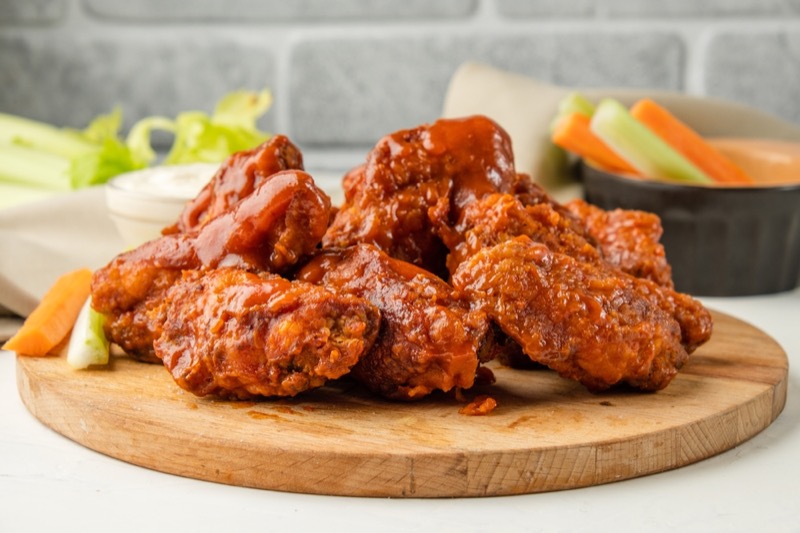
Indulge Your Spicy Cravings with a Bite of Our Nashville-Style Hot Chicken
The captivating world of spicy food’s addictive allure is a harmonious fusion of chemistry, psychology, and culture. Beyond its taste, the thrill of spice engages our senses and kindles our emotions, creating an experience that’s more than a mere meal—it’s an adventure for the palate and the soul.
If your taste buds are yearning for that enticing burn, your search ends here at Main Bird Hot Chicken. With three convenient locations across Texas, including Sugar Land, Spring, and Cypress, you can savor the ultimate Nashville-style hot chicken experience. Not only will you satisfy your craving for spice, but you’ll also enjoy the assurance of 100% halal offerings. Main Bird Hot Chicken brings the heat in the best way possible.
Our locations include:

